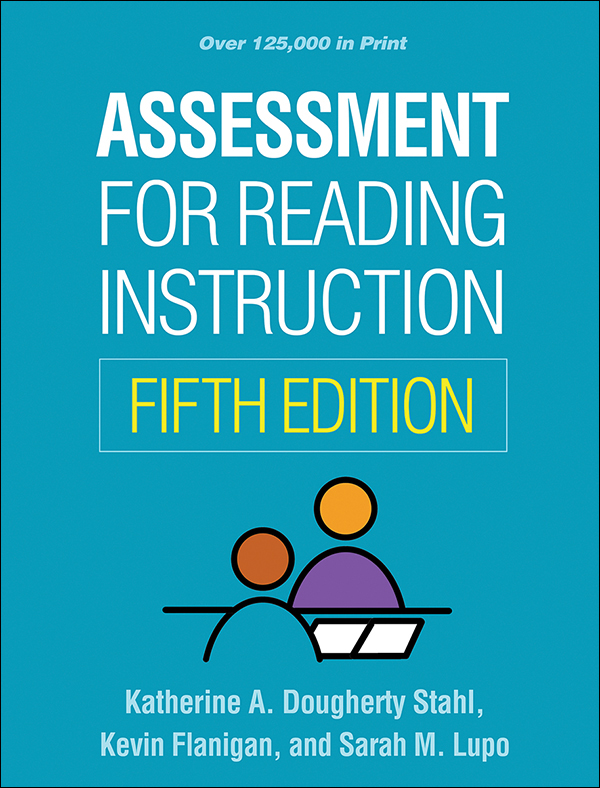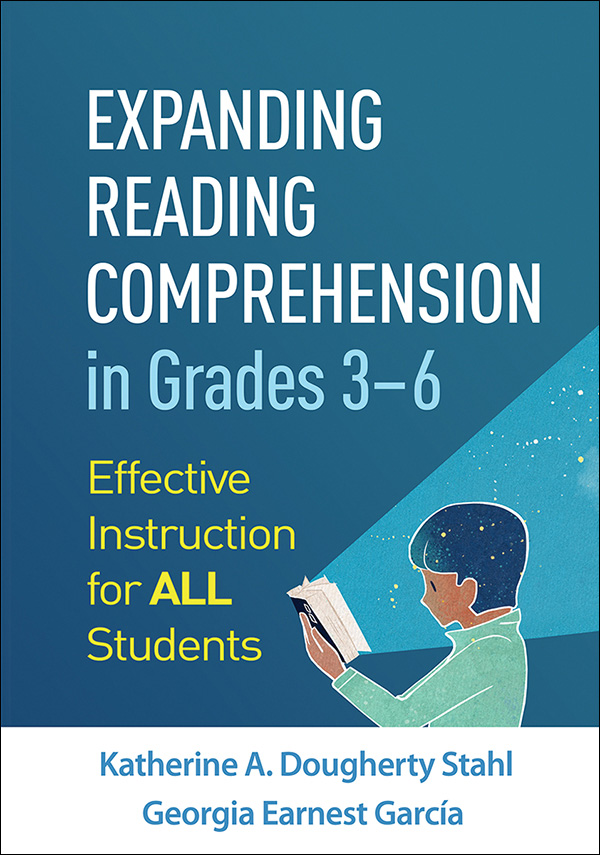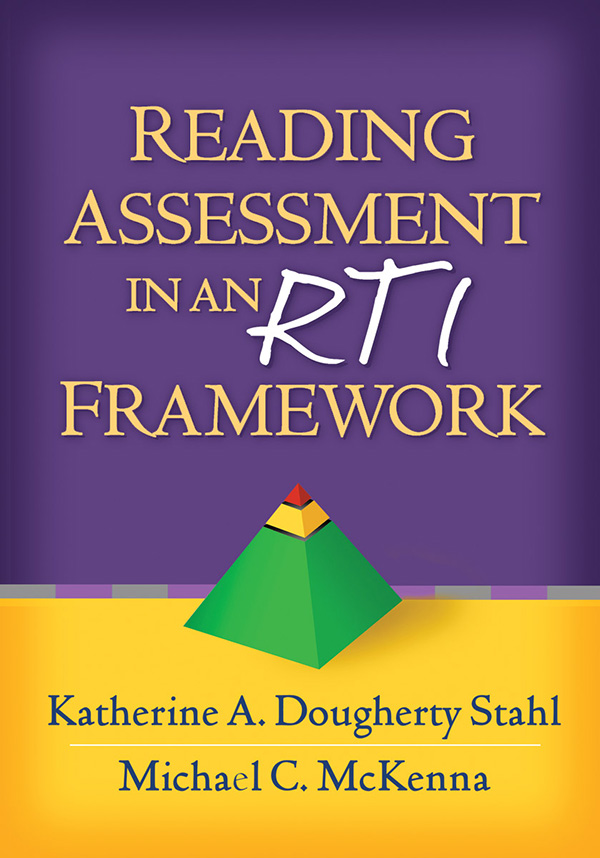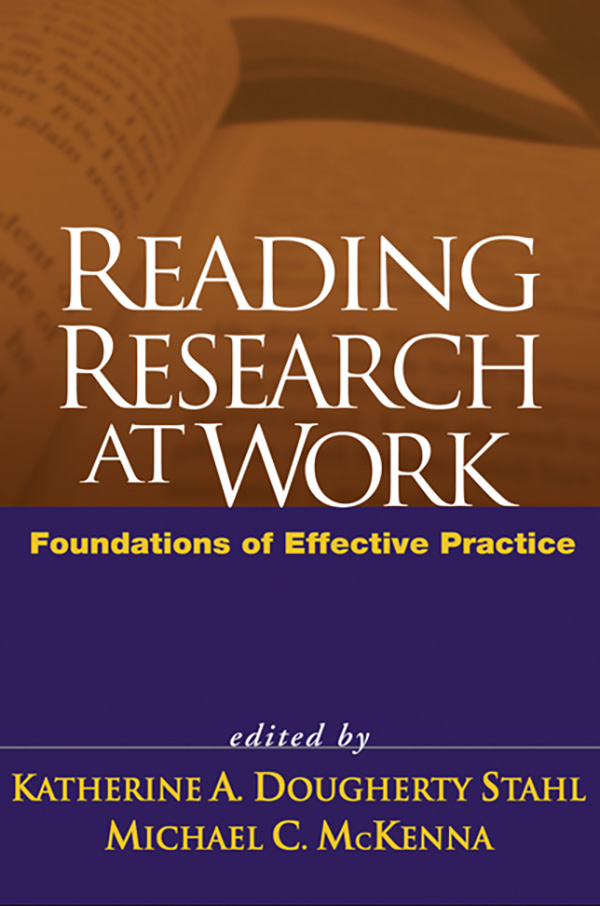Books
Assessment for Reading Instruction
~Fifth Edition
This trusted text and teacher resource is now in a revised and updated fifth edition, reflecting key advances in the science of reading. It covers the “whys,” “whats,” and “how-tos” of systematic reading assessment in grades K–8. The authors provide a roadmap and practical tools for evaluating students’ strengths and needs in each component of reading, resulting in a seamless integration of assessment, evidence-based instruction, and intervention. Essential topics include evaluating the comprehension of beginning readers, assessing older struggling readers, supporting English learners, and preparing diagnostic reading reports. In a convenient large-size format, the book includes 30 reproducible and downloadable tools, plus an online-only appendix with an additional multipage assessment. Read a sample chapter >

“The fifth edition of this text has been updated with tons of valuable new content, including much more coverage of the science of reading, a new chapter on morphology, and reconsideration of the role of informal reading inventories in assessment. Especially worthwhile features of the book include its incorporation of the active view of reading along with the simple view in understanding reading difficulties, its discussion of older readers (grades 4–8), and its systematic steps for identifying specific difficulties in individual students. The many practical forms accompanying the text, such as an informal decoding survey, will be very helpful for teachers. The fifth edition is an excellent resource on formative assessment for planning reading instruction, particularly for general educators and reading specialists.”
“An essential reference for teachers, coaches, and teacher educators. The authors provide a comprehensive guide to assessment, including important contextual information as well as practical tasks and questions for assessment. The fifth edition features critical updates pertaining to the science of reading. The new chapter on morphology is a particularly valuable addition. Overall, the coherent, measured approach and balanced attention to younger and older readers makes this a go-to text for all of us who want to thoughtfully administer and interpret literacy assessments. I am glad to have this text for use in my Reading Assessment course.”
“A comprehensive, practical, ‘must-have’ resource. The fifth edition connects each assessment to the latest science-of-reading research. The first chapter alone should be required reading for all teacher prep candidates and should be used in districtwide trainings. The authors’ three-pathway cognitive model offers a reliable way to fully assess each student’s needs and includes valuable next-step advice. The authors have hit it out of the park with this easy-to-use, teacher-friendly fifth edition!”
“In its fifth edition, this book remains one of the most comprehensive and accessible resources for educators dedicated to improving student literacy outcomes. It offers updated research, practical tools, and clearly explained assessment strategies. The book provides essential context for understanding how and why we assess literacy. It guides readers through the core components of reading and clearly explains the purpose and process of assessing each area. By connecting assessment to instruction, the fifth edition empowers educators to make informed, evidence-based decisions that will foster measurable growth in students’ reading abilities.”
Expanding Reading Comprehension in Grades 3-6
Teaching reading comprehension IS rocket science! This book describes the latest science of reading comprehension instruction. Chapters address knowledge building, text selection, vocabulary development, strategy instruction, discussion formats, writing, assessment, and more. Meeting the needs of emergent bilingual and culturally diverse students is highlighted throughout. The book includes classroom vignettes, text boxes with easy-to-read instructional procedures, and curriculum resources. Read a sample chapter >
Developing Reading Comprehension in Grades in PreK-2
The science of reading discussions typically emphasize foundational skills—often at the expense of essential research-tested methods for developing the comprehension of young children. This book presents effective classroom strategies for scaffolding comprehension skills, using content to promote engagement, and implementing high-level discussions and writing tasks with young children. Meeting the needs of emergent bilingual and culturally diverse students is highlighted throughout.
Read a sample chapter >
Reading Assessment in an RTI Framework
This practical handbook presents a model for conducting reading assessments for screening, diagnosis, and progress monitoring in each of the three tiers of a school’s RTI or MTSS framework. Each chapter guides K-8 teachers in the use of norm-referenced, informal, and curriculum-based measures to assess key components of reading and to employ the science of reading to inform intervention options.
Read a sample chapter >
Reading Research at Work: Foundations of Effective Practice
This book includes state-of-the-science research on the components of literacy learning and how to target them in contemporary classrooms. The volume builds on and extends the work of Steven Stahl. Leading reading researchers highlight Stahl’s contributions and instructional innovations, describe how knowledge about each domain continues to evolve, and discuss implications for helping all children become better readers.
Read a sample chapter >




